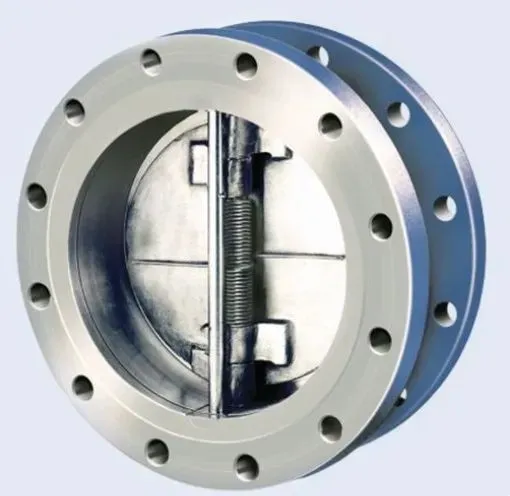24 Volt Electric Actuator for Precision Control and Automation Applications
Understanding 24 Volt Electric Actuators
Electric actuators are essential components in various automated systems, converting electrical energy into mechanical motion. Among the different types of electric actuators available, the 24-volt electric actuator has gained popularity due to its versatility, efficiency, and compatibility with numerous applications. This article will delve into the characteristics, advantages, applications, and considerations associated with 24-volt electric actuators.
What is a 24 Volt Electric Actuator?
A 24-volt electric actuator is an electromechanical device that utilizes a 24-volt power supply to produce linear or rotational motion. It typically consists of a motor, gearing mechanism, and output shaft or rod. These actuators can be either linear, moving in a straight line, or rotary, providing rotational motion.
The choice of 24 volts as a standard voltage for electric actuators is influenced by several factors. First, it strikes a balance between efficiency and safety. Lower voltages reduce the risk of electrical shock, making them safer for industrial and commercial applications. Moreover, 24-volt systems are less prone to electrical noise, which is vital in sensitive environments.
Advantages of 24 Volt Electric Actuators
1. Versatility One of the most significant advantages of 24-volt electric actuators is their versatility. They are used in various applications, from simple automation tasks to complex industrial processes. These actuators can control valves, dampers, doors, and other mechanical devices, enabling automation in sectors like manufacturing, utilities, and HVAC.
2. Compact Design The compact design of many 24-volt electric actuators makes them suitable for applications with space constraints. Their smaller size enables easy integration into existing systems without requiring extensive modifications.
3. Efficiency With advancements in electric motor technology, 24-volt actuators have become highly efficient, transforming electrical energy into mechanical power with minimal energy loss. This efficiency translates to reduced operational costs and lower energy consumption.
4. Ease of Control 24-volt electric actuators can be easily integrated with various control systems, including programmable logic controllers (PLCs) and microcontrollers. This ease of control allows for precise operation and automation capabilities, facilitating the development of sophisticated automated processes.
5. Safety Operating at a lower voltage enhances the safety of electric actuator systems. This feature is particularly beneficial in environments where personnel may be exposed to electrical systems.
Applications of 24 Volt Electric Actuators
The applications of 24-volt electric actuators are extensive, covering multiple industries
24 volt electric actuator

- Automotive In the automotive sector, these actuators can be used for seat adjustments, window lifts, and other automated components within vehicles
.- HVAC Systems In heating, ventilation, and air conditioning systems, 24-volt actuators control dampers and valves, optimizing airflow and enhancing energy efficiency.
- Industrial Automation In manufacturing and processing, these actuators facilitate the automation of conveyor systems, robotic arms, and assembly lines, improving productivity and reducing labor costs.
- Agriculture Modern agricultural machinery often employs 24-volt actuators for tasks like precision planting, automated irrigation, and other field operations.
- Home Automation In smart homes, electric actuators control curtains, gates, and other automated features, enhancing convenience and security.
Considerations When Choosing a 24 Volt Electric Actuator
When selecting a 24-volt electric actuator, several factors should be considered
1. Load Requirements Determine the load that the actuator needs to move. This involves considering the force, speed, and stroke length required for your specific application.
2. Environmental Conditions Assess the operating environment. Actuators may need to be weatherproof or resistant to chemicals, depending on their application.
3. Duty Cycle Evaluate the expected duty cycle of the actuator—how often it will operate within a given time frame. This consideration affects the selection of the right actuator type.
4. Control Interface Ensure compatibility with your existing control systems. Understanding the control methods, such as analog, digital, or pulse-width modulation (PWM), is crucial for smooth integration.
Conclusion
In summary, 24-volt electric actuators are invaluable tools in modern automation, offering safety, efficiency, and versatility across various sectors. Their ability to efficiently convert electrical energy into mechanical motion makes them a go-to solution for countless applications. When choosing the right actuator, it's essential to consider the specific needs of your project and the environmental factors that may impact its performance. As technology continues to evolve, the role of electric actuators, especially those operating at 24 volts, will only become more significant in automating and enhancing industrial and domestic processes.
-
The Key to Fluid Control: Exploring the Advantages of Ball Valves in Industrial SystemsNewsJul.09,2025
-
The Versatile World of 1, 2, and 3 Piece Ball ValvesNewsJul.09,2025
-
Stainless Steel Ball Valves: The Ideal Choice for Efficient Flow ControlNewsJul.09,2025
-
Optimizing Fluid Control with Ball Float ValvesNewsJul.09,2025
-
Manual Gate Valves: Essential for Control and EfficiencyNewsJul.09,2025
-
Everything You Need to Know About Butterfly ValvesNewsJul.09,2025
-
The Versatility of Wafer Type Butterfly ValvesNewsJul.08,2025




